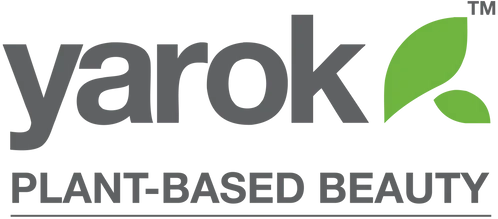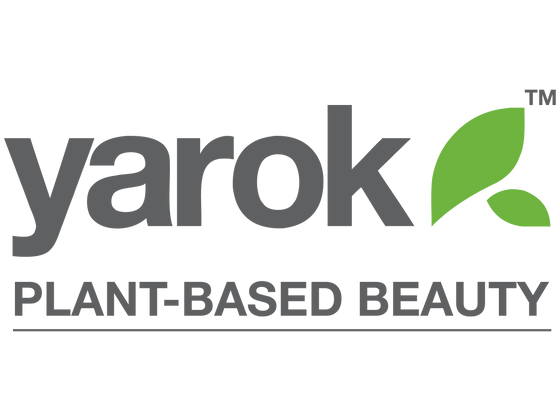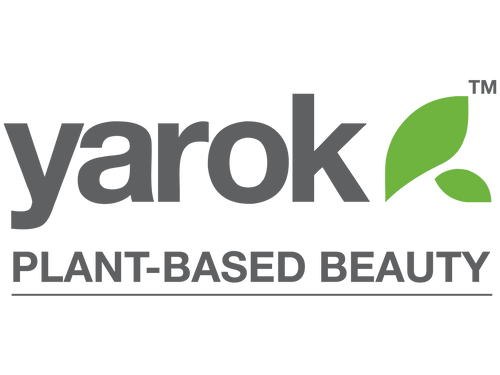Hair Nutrition 101

The Best Nutrients for Healthy Hair
Your hair is a part of your image – What story do you want it to tell? Optimal nutrient intake is crucial to growing HEALTHY, STRONG, & SHINY hair
Eat Your Way to Healthy Hair
Nourished, healthy hair starts with a nourished, healthy body. Yes… you can eat your way to radiant, beautiful hair! Sound too good to be true? When you prioritize your diet, you feed your hair from the inside out.
Where to start? Focus on a diet rich in fruits, vegetables, nuts, seeds, and healthy fats. The more colors you eat, the better! As we like to say, eat the rainbow. Why is a colorful diet important? Every color contains varying nutrients. For example, orange fruits and veggies like pumpkin and carrots are known for their high concentration of Beta Carotene, while blue and red fruits and vegetables are best known for their high levels of antioxidants.
So what nutrients are best for healthy hair?
Top 11 Nutrients for Healthy Hair
- Vitamin A
- B Vitamins
- Vitamin C
- Vitamin D
- Vitamin E
- Protein
- Zinc
- Calcium
- Iron
- Selenium
- Omega-3 fatty acids
Vitamin A:
Make this fat-soluble vitamin a staple in your diet. That shiny, hydrated hair you crave? You can thank Vitamin A for that. A 2012 study (1),observed Vitamin A’s role in helping grow and repair hair and skin through the production of sebum. Sebum is an oil produced by the body which helps lubricate the skin and scalp, which in turn helps to generate hair growth. Hallelujah!
Sources: carrots, sweet potatoes, pumpkin, squash, apricots, spinach, kale, swiss chard
B Vitamins:
While all B Vitamins play an important role in a healthy diet (and healthy head of hair), Biotin (B7) is one of the super star supplements recommended for luscious locks. Why? This water-soluble vitamin is known to stimulate hair growth, leading to thicker, fuller hair. You better get your daily dose… If you’re deficient in Biotin, it may show! Studies show (3) Biotin deficiency may lead to hair loss.
Sources: Green leafy vegetables, whole grains, eggs, nuts, avocados, fish
Vitamin C:
Vitamin C is a water-soluble antioxidant found in many colorful fruits and green leafy veggies. Vitamin C’s antioxidant capabilities are one of the secrets to the fountain of youth…protection from free radical damage. Free radicals speed up the aging process... yes, eating your broccoli (one of the highest sources of Vitamin C) could bring out your inner youth! Vitamin C is also essential to the production of collagen, one of the building blocks for healthy skin and hair.
Sources: Kiwi, Bell Pepper, Guava, Pineapple, Citrus, Strawberries, Papaya, Broccoli, Tomato, Kale,
Vitamin D:
This unique Vitamin can be obtained through food and supplement sources as well as synthesized through direct contact with sunlight (mother nature… you really do it all). Why is Vitamin D essential for healthy hair? A recent 2019 study (2) found an association between Vitamin D deficiency and hair loss, specifically, the autoimmune condition alopecia!
Sources: Sunlight, cod liver oil, egg yolk, fatty fish, mushrooms, fortified foods such as cereal and non-dairy milks
Vitamin E:
Much like Vitamin C, Vitamin E is known for its antioxidant (and anti-aging) properties. Vitamin E has been shown to moisturize the hair and scalp, reduce breakage (4), and increase hair growth (5). Nuts and seeds are a great (and delicious) source of Vitamin E.
Sources: sunflower seeds, pumpkin seeds, almonds, hazelnuts, avocado, kale, spinach
Protein:
Just as you want a strong healthy body, you want strong, healthy hair! It makes sense that protein is essential for hair health, after all, the protein keratin is what makes up 85-90% of our hair. Adding complete protein sources into your diet, such as quinoa, helps to strengthen and lengthen our locks while preventing breakage.
Sources: salmon, eggs, chicken, lentils, chickpeas, tofu, tempeh, quinoa, supplements such as collagen peptides or plant based protein powders
Zinc:
You’re telling me chocolate is good for my hair? Okay, maybe not chocolate, per say, but the mineral found in dark chocolate… zinc! We’ll read between the lines on this one. Incorporating zinc-rich food sources such as cacao, nuts and seeds has been shown to prevent hair loss. Zinc is required for over 300 enzymatic reactions in the body (6), including maintaining protein structure (and preventing the loss of hair).
Sources: Cacao, Cashews, Almonds, Asparagus, Pumpkin and Watermelon Seeds, Salmon, Oysters
Calcium:
Growing up, parents stress the importance of eating green veggies to grow… turns out they were talking about hair growth! Dark, leafy greens are one of the best sources of calcium, and therefore one of the best nutrients for healthy hair! Studies show higher calcium intake correlates with increased hair growth (7)… looks like we’ll be filling our plates with all the greens.
Sources: dark green leafy veggies, almonds, avocado, beans, cauliflower, fortified products such as cereals and milks
Iron:
Is your hair thinning or falling out more than usual? This may indicate an iron deficiency. One of the key symptoms of anemia, a blood condition that occurs when too little iron is present in the body, is hair loss. Healthy blood equals healthy hair? Yes! To ensure maximum iron absorption from plant-based sources such as spinach and kale, add a little Vitamin C! Tip: spinach and lemon make a great combo
Sources: spinach, lentils, beans, kale, dark chocolate, pumpkin seeds, egg yolk, red meat
Selenium:
Do you suffer from a dry, flaky scalp? Avoid the embarrassment of dandruff by incorporating selenium rich foods into your diet. As an essential nutrient for hormone health, adequate selenium levels also prevent excess hair loss! Did you know just one brazil nut a day provides the entire Recommended Daily Intake for selenium? Why opt for vitamins when you can easily get your nutrients from natural foods!
Sources: brazil nuts, salmon, tuna, beef, sunflower seeds, egg yolk, spinach
Omega-3 Fatty Acids:
Why are Omega-3 fatty acids considered essential for healthy hair? Firstly, your body cannot produce Omega-3 Fatty Acids on its own. You must obtain this anti-inflammatory nutrient through food or supplementation. A diet rich in Omega 3's is the secret to beautiful hair shine! The rich fatty acids in Omega 3's nourish the hair follicle to promote hair growth and prevent dry, damaged hair
Sources: Walnuts, Salmon, Tuna, Sardines, Flaxseed, Vegetable Oils
Eat MORE Seeds & Nuts, Legumes, Leafy Greens, Whole Grains, Fruits, & Cold Pressed Juiced Vegetables
& LESS Sugar, Refined Grains, Artificial Sweeteners, Processed Food, Alcohol
Sources:
-
Everts HB. Endogenous retinoids in the hair follicle and sebaceous gland. Biochim Biophys Acta. 2012 Jan;1821(1):222-9. doi: 10.1016/j.bbalip.2011.08.017. Epub 2011 Sep 3. PMID: 21914489; PMCID: PMC3237781.
-
Almohanna HM, Ahmed AA, Tsatalis JP, Tosti A. The Role of Vitamins and Minerals in Hair Loss: A Review. Dermatol Ther (Heidelb). 2019 Mar;9(1):51-70. doi: 10.1007/s13555-018-0278-6. Epub 2018 Dec 13. PMID: 30547302; PMCID: PMC6380979.
-
Glynis A. A Double-blind, Placebo-controlled Study Evaluating the Efficacy of an Oral Supplement in Women with Self-perceived Thinning Hair. J Clin Aesthet Dermatol. 2012 Nov;5(11):28-34. PMID: 23198010; PMCID: PMC3509882.
-
PANIN, G., STRUMIA, R. and URSINI, F. (2004), Topical α‐Tocopherol Acetate in the Bulk Phase: Eight Years of Experience in Skin Treatment. Annals of the New York Academy of Sciences, 1031: 443-447. doi:1196/annals.1331.069
-
Beoy LA, Woei WJ, Hay YK. Effects of tocotrienol supplementation on hair growth in human volunteers. Trop Life Sci Res. 2010 Dec;21(2):91-9. PMID: 24575202; PMCID: PMC3819075.
-
Zastrow ML, Pecoraro VL. Designing hydrolytic zinc metalloenzymes. Biochemistry. 2014 Feb 18;53(6):957-78. doi: 10.1021/bi4016617. Epub 2014 Feb 7. PMID: 24506795; PMCID: PMC3985962.
-
Jeruszka-Bielak M, Brzozowska A. Relationship between nutritional habits and hair calcium levels in young women. Biol Trace Elem Res. 2011 Dec;144(1-3):63-76. doi: 10.1007/s12011-011-9030-0. Epub 2011 Mar 30. PMID: 21448562; PMCID: PMC3241915.










